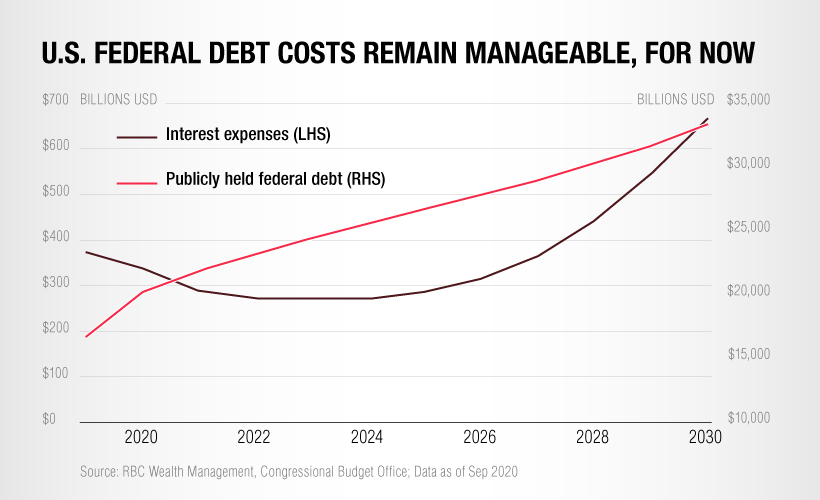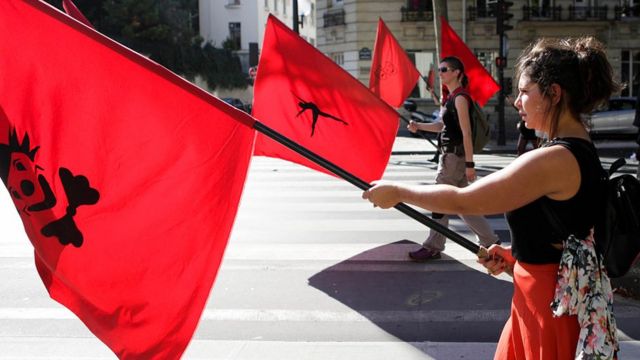President Bolsonaro has repeatedly invoked the idea that the Amazon is under threat from a foreign takeover as he pushes back against foreign leaders, indigenous groups, and environmental organizations when they show concern for the forest, demand more reservation areas, or denounce environmental destruction. In May 2018, during his campaign for president, President Bolsonaro hinted at the conspiracy theory: "The Amazon is not ours," he claimed. "I say that with a lot of sadness, but it is a reality." Later that year, after being elected but before taking office, he threatened to withdraw from the Paris climate agreement, claiming that it weakened Brazilian control over the Amazon.
And in April 2019, already in power, he spoke openly about a murky plot to steal the forest from Brazil that involved the creation of indigenous reserves. "If we don't change our policies, we will lose the Amazon," he said in a radio interview with Jovem Pan. "The United Nations has been discussing, for a while now, that through the auto-determination of indigenous peoples, you could have new countries here inside," he added. "That could happen."
A fear with roots in the military
Fears of foreign meddling in the Amazon are not entirely unfounded. Two years ago, Stephen Walt, a respected professor of international relations at Harvard University, wrote an article for Foreign Policy, a respected publication on international politics, titled "Who Will Invade Brazil to Save the Amazon?" The title, which the scholar said on Twitter had not been written by him, was later softened to "Who Will Save the Amazon (and How)?"
Walt's article started with a hypothetical description of an American president ordering an invasion of Brazil due to environmental breaches. "The president's decision came in the aftermath of a new United Nations report cataloging the catastrophic global effects of continued rainforest destruction," Walt fantasized. It continued with a discussion of the merits of that move, including the international mechanisms and historical precedents that would allow it to happen.
It is also true that foreign leaders have repeatedly made statements that could be perceived as questioning Brazil's sovereignty over the Amazon. They include former vice president Al Gore, then a senator, ("Contrary to what Brazilians think, the Amazon is not their property, it belongs to all of us"), then French president François Mitterrand (Brazil should accept a "relative sovereignty" over the forest), and then British prime minister John Major (who threatened military action to expand the rule of law "over what is common to all in the world").
But as with other conspiracies, that germ of truth has been extrapolated into absurdity. The rumor about the textbooks is a good example of that. It actually started in the armed forces, as a short text in a small independent website kept by retired military officers in Brazil, according to a dossier compiled by Paulo Roberto de Almeida, a diplomat at the embassy in Washington in the early 2000s, when the email went viral for the first time.
The title of the website -- "Brazil, Love It or Leave It" -- is a slogan of the military dictatorship, and its content is nationalistic. Its stated goal is to fight disinformation, but it actually features a multitude of conspiracies, many referring to the Amazon.
The authors of the website see foreign leaders' disparaging remarks about Brazil's guardianship of the Amazon as attempts to weaken Brazilian sovereignty over the forest, and as a means to open it for interference, exploitation, and invasion.
One article claims that a reserve granted to an indigenous group was a "nation within the nation" with covert separatist intentions. Another claims that an "ecologist hysteria," fueled by foreign-sponsored activists and journalists, were part of a plot to internationalize the Amazon, "taking away from Brazil the right to use its wealth."
"We are undergoing a process in our country that is beyond logic," the authors of the website explain in an editorial. Rich countries are using globalization, environmentalism, and humanitarianism to force poor nations to open their markets, politics, and territories to foreign interference. Brazil is failing to fight that invasion, the editorial claims. "A full opening is underway," and the forest is central to that process.
The authors, whose full names are not displayed on the website, did not respond to a request for comment from CNN.
To defend, but not to protect
President Bolsonaro, a military man himself, is no stranger to such fears of encroachment on Brazilian sovereignty. Since he reached power two years ago, he seems to have been fighting some of the internal enemies identified by the creators of the rumor about the textbook -- indigenous peoples and environmental groups.
Not a single indigenous reservation was created during his first two years in power, a considerable drop compared to predecessors. Right-wing president Fernando Henrique Cardoso approved an average of 36 indigenous reservations every two years during his presidency in the 1990s. Left-wing president Lula da Silva approved an average of 22 per two years. Now, approvals of indigenous reservations have fallen to zero, according to newspaper O Globo.
The Bolsonaro administration has also frozen some state funding that supports environmental groups, a move that O Globo described as "a declaration of war on NGOs." Bolsonaro later claimed that environmental organizations were setting fires to the Amazon, recording them, and sending the images abroad to make him look bad to international audiences.
The president has also aimed fiery statements at the foreign enemies supposedly plotting a takeover of the Amazon in collusion with international organizations.
"We saw recently a great candidate for head of state say that if I don't put out the fire in the Amazon, he will put up commercial barriers against Brazil," he said in 2020, referring to comments made by Joe Biden during a presidential debate.
"How can we deal with all that? Just diplomacy is not enough," he said. "When saliva runs out, one has to have gunpowder."
In August 2019, following an infamous fire season in the Amazon, French President Emmanuel Macron tried to pressure Brazil into improving environmental protections. "Our house is burning," he tweeted ahead of the 2019 G7 summit, urging his fellow leaders to discuss the "emergency." During the summit, he made a reference to Brazilian control of the forest. "The Amazon forest is a subject for the whole planet," he said. "We respect your sovereignty", he added, "but we cannot allow you to destroy everything."
The following month, during a meeting with presidents of South American countries that include portions of the Amazon, President Bolsonaro criticized Macron's remarks, making clear that he saw in them a potential plan to wrest the vast forest from Brazil. "A plan to turn this large area into a world heritage site is still on the table," he said at the time.
Colombian President Iván Duque, the host of the meeting, said Amazon states needed to better coordinate their actions to stop the cutting and burning of trees. Ecuadorian President Lenín Moreno sang a song about environmental preservation. Bolsonaro, meanwhile, insisted that the summit's final declaration mention sovereignty.
"We have to say that the Amazon is ours," he said. "We have to take a firm position in defense of our sovereignty, so that each country can, within its land, develop the best policy for the region, and not let that this policy be dealt with by other countries."
The Brazilian President's fears of a foreign takeover of the Amazon might be irrelevant if they did not pose a material effect on the forest itself.
If history is any indication, the effect might be catastrophic. The Amazon was a central concern of the military dictatorship that ruled Brazil between the 1960s and 1980s. The officers in power believed that the region was highly vulnerable to foreign interference, being too vast, too isolated, and too precious for its own good. They tried to end that vulnerability by encouraging people to move there, stimulating agriculture, ranching, and mining, paving the forest with highways, and building ports, mines, refineries, and dams. These initiatives were devastating, and deforestation spiked in the period between 1965 and 1985.
In early 2019, the Bolsonaro administration sketched an ambitious development project guided by similar ideas. The Baron Rio Branco Plan, created by retired military general Maynard Marques de Santa Rosa, then a member of the administration, aimed at building a dam and a bridge over two Amazon rivers, expanding an existing highway all the way to Suriname, and incentivizing mining and farming. Indigenous peoples and environmental groups issued statements repudiating the project, in part because the expanded highway would pass through multiple areas of protected forest.
In late 2019, Santa Rosa left the government and the plan lost strength, but specific parts, like the highway, are still planned by the government and could still become a reality.
Bolsonaro's goals to protect the Amazon hint at tragic outcomes. His first two years in office have only ushered in more destruction of the forest. His attacks on indigenous peoples, and the organizations that support them, weaken the most efficient guardians of the forest. And his plans to "develop," "colonize," and "integrate" the Amazon, like the plans of the military officials who preceded him, risk accelerating its disappearance. 













